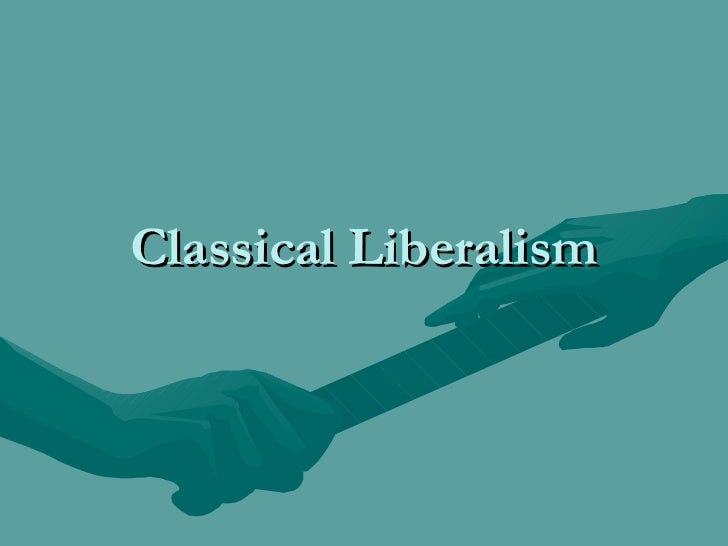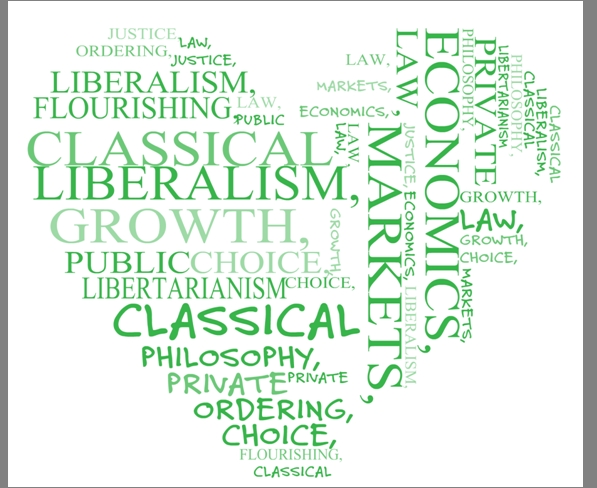Classical liberalism
As a classical liberalism different early forms of liberalism are known: one is the teachings of the philosophical theorist John Locke and Immanuel Kant, who systematically justified liberalism as a political ideology, on the other hand - since the beginning of the 20th century - the economic policy ideas of the most important representatives of classical economics and free trade doctrine.
Policy
Characteristic of the classical liberalism in the tradition of Immanuel Kant, John Locke and Montesquieu is a theory of legitimacy for political power, which is based on the elements of human rights, constitutional and rational self-determination of citizens. A major reason value for the justification of public institutions and to the Constitution of the economy, society and culture is individual freedom. Important for classical liberalism is also the close relationship between economic freedom (by a private property and freedom of contract ) and political freedom. In contrast to republicanism play for the classical political liberalism civic virtues no significant role. Rather, he relies more on right -locking institutions, general laws and fundamental, inalienable rights.
Famous representatives or precursors of classical liberalism were in addition to the above and the theorists of the social contract Thomas Hobbes, democracy theorist Alexis de Tocqueville, the founder of the liberal ideal of education Wilhelm von Humboldt and the influential to the development of National Liberalism Johann Gottlieb Fichte.
Economy
Since the beginning of the 20th century, the resulting end of the 18th century Scottish- English doctrine of classical economics is called liberalism. This policy position is now provided also often called " classical liberalism " (also old liberalism or derogatory Paläoliberalismus ). She untied the views of mercantilism and the physiocratism from .. Important representatives of classical economic liberalism are Adam Smith, David Ricardo, John Stuart Mill and Jean -Baptiste Say. Smith presented based on the myriad of state intervention in the economy mercantilism against economic liberalism, the largely familiar to the free play of forces. The authors of classical economics were politically for exempting the economic activities of all restrictions of the guild and feudalism. They demanded competition, free trade, the right to private property and freedom of contract. Classical liberalism economic imprinting assumes that the free market as an economic expression of the freedom of the optimal control instrument of the economy is, the pension automatically for optimal resource allocation. The selfish pursuit of individuals serving in a free society with " invisible hand " per se in the public interest. For classical liberals, the state must be limited to three tasks: ensuring the external and internal security, the provision of an impartial judiciary and the maintenance of potentially unprofitable services, such as school education. This is polemically referred to as " night watchman state ".
In the view of Rudolf Walther equating economic liberalism and classical political economy is misleading, since the founder of the economists themselves have not used the term, and also stocks differences to today's position of economic liberalism. Objectively, however, there is a history of dogma context.
According to Karl - Hermann Flach was the liberalism of the early theorists such as Adam Smith and David Ricardo, no privilege theory but a social doctrine that emanated from the thesis that "the progress of the whole would be most effective if every single attempt would be to achieve the best. " not lucky few individuals is the scale of these theorists, " but the happiness of the whole as the sum of the success of aspiring individuals. " flat argues that the " free play of forces did not lead to perfect competition ", but this would be increasingly restricted by cartels and dominant concentrations. That is why neo-liberals would like Wilhelm Röpke and Walter Eucken struggled through " to the right of state intervention for the production and recovery of competition."
Definition of neo-liberalism from classical economic liberalism
Middle of the 20th century, the terms " old" - or " Paläoliberalismus " regarding the definition of neo-liberalism from classical liberalism ( economic liberalism ) used. The term neoliberalism was then used as a synonym for Ordoliberalismus. While neoliberalism is also identified as a battle cry against a policy of an assumed market fundamentalism since the 1990s, the ( German ) neoliberalism represented then the opposite position by demarcated from the pure market thinking of classical liberalism.
" Share with neoliberalism, the representatives of the social market economy, the conviction that the old liberalism has indeed seen the importance of the competition function properly, but the social and sociological problems are not adequately considered. "
Alexander Rustow used the name Paläoliberalismus also Colloque Walter Lippmann on. There, the participants agreed on the term neoliberalism, which should stand as a counter-concept for a modern liberalism, which differs from the laissez- faire. Since then, use authors, but also, for example, Alexander Rustow, Wilhelm Röpke and Alfred Müller- Armack the term old liberalism in order to distinguish, for example, the Austrian school of their conception of neoliberalism.
Alexander Rustow resulted in his work back The failure of economic liberalism as a religion historical problem (1945), the ideological background of classical liberalism and in particular the idea of the invisible hand to a general pseudo-religious harmony faith. This conviction was the basic attitude of laissez -faire caused by the reliance on a set of pre-established harmony of creation the world should be left to the free run. This dogma held Rüstow for the decisive reason why the economic liberalism of the 19th century in the face of obvious mistakes was not willing to take countermeasures.
"The market, however, has an above economic framework which is formed by laws, etc., and within this framework can not schedule enough fro the matter. (...) At this regularity of the frame, particularly in the area of social policy, it sadly very lacking God more. Thus we distinguish Neuliberalen us even from the old liberals that we are aware of the necessity of the frame and its design -conscious. Unfortunately, this distinction is blurred by that there are a number of old liberals, some of very intransigent old liberals, especially in America, which falsely and misleadingly ' Neuliberale ' call themselves, offering great confusion. Unfortunately, we can not proceed with patent litigation and trademark protection against it. "
Friedrich August von Hayek sees himself in the Constitution of Liberty (1960 ) " quite explicitly in the succession of classical liberalism Hume and Smith and their imagination to Evolutorik social development. " The economist John Kenneth Galbraith understands this work Hayek as anachronistic throwback to the world of thought of laissez - faire liberalism of the 19th century. Ingo Pies, however, stressed that Hayek systematically rejected the laissez- faire liberalism. He wanted " no minimal state, but a functional constitutional state, the economic policy operates primarily as a law-making. "
Milton Friedman also looked (later) as a classical liberal, not a neo-liberal.










